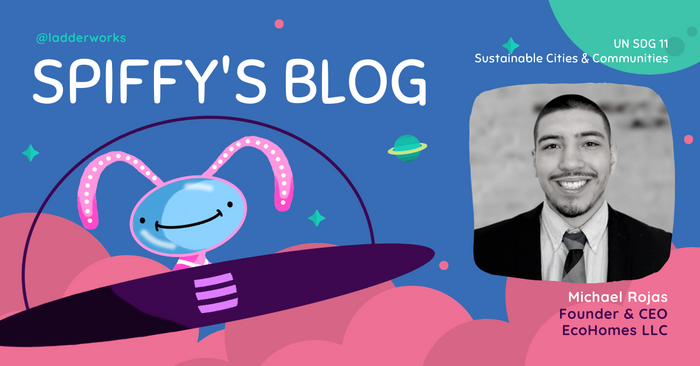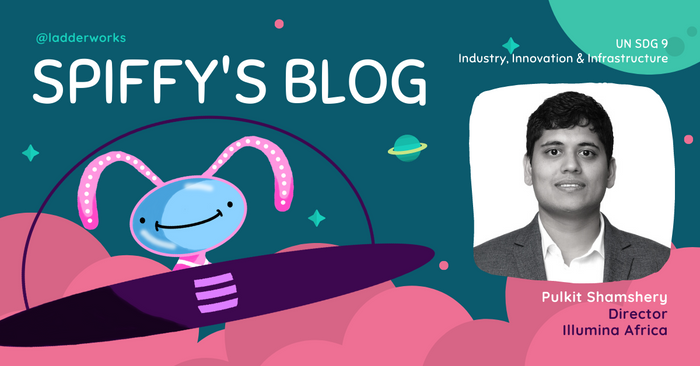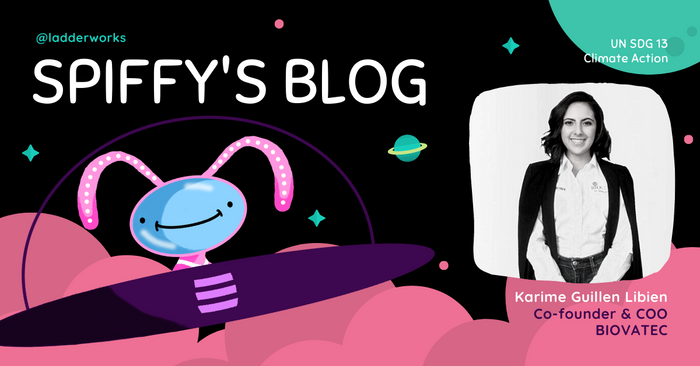Michael Rojas: Combating Climate Gentrification with Sustainable, Affordable Housing

 Hi everyone! I’m Spiffy, your favorite interplanetary journalist reporting from Planet Earth with an eye on entrepreneurs making a difference in climate and equality. Today I’m going to learn how Michael Rojas, founder and CEO of EcoHomes LLC, is working to tackle housing inequality and create sustainable solutions for those most at risk. Are you ready to be inspired?
Hi everyone! I’m Spiffy, your favorite interplanetary journalist reporting from Planet Earth with an eye on entrepreneurs making a difference in climate and equality. Today I’m going to learn how Michael Rojas, founder and CEO of EcoHomes LLC, is working to tackle housing inequality and create sustainable solutions for those most at risk. Are you ready to be inspired?
Spiffy: Welcome Michael, it’s a pleasure to have you here today. Can you start by telling me what challenge you are addressing?
Michael: Thanks for having me, Spiffy! Did you know that the current housing system does not enable effective sustainable housing development in underserved areas? Municipalities are not able to keep up with the demand for affordable housing and communities suffer from disconnected initiatives. These problems have been amplified by COVID-19 and will continue to be impacted by climate change. Currently, there are 7.2 million more low-income Americans than there are homes for them to rent, and the EcoHomes team plans on bridging that gap.
Spiffy: Wow, this sounds like a gap that really needs to be addressed! What motivated you to do it?
Michael: BIPOC communities in lower-income neighborhoods are rent-burdened and face environmental inequalities. In an effort to combat climate gentrification, EcoHomes can provide housing, skills, and education to set these communities up to generate wealth. To prevent and mitigate economic harm and potential gentrification that prices out lower-income residents, EcoHomes will promote meaningful community engagement by partnering with schools and non-profit organizations.
Spiffy: How else are you working to make the world more equitable for people?
Michael: EcoHomes LLC will address these inequalities by serving as purpose-driven leaders in the real estate industry. The conventional “fix and flip” approach is to purchase “cheap” homes, renovate at the lowest costs, and up-charge tenants in an effort to maximize profits (gentrification). At EcoHomes LLC we plan on purchasing distressed properties and providing affordable housing by implementing equitable green-building solutions from frameworks such as LEED, Passive House, WELL, and EcoDistricts.
Spiffy: Sounds like a solid plan! Can you tell me about any milestones that you’ve reached and the kind of impact you hope it will have?
Michael: I am a part of a group called Latinxs in Sustainability. The group started as a committee in the Society of Hispanic Engineers NYC professional chapter. We recently branched off and formed a fiscal partnership with a not-for-profit organization titled "Latino Verde". This new partnership will allow us to apply for grants that will provide scholarships, sponsor certifications for students, and create pathway programs for people interested in getting into the field of sustainability.
Spiffy: The more people on board, the better! I’m wondering if you could share about an experience when you faced failure and didn't give up. What did you learn from failure?
Michael: The biggest barrier is scaling and access to financing. We've spent the last year participating in different pitch competitions and mentorship programs to try to figure out a scalable business model. The team is shifting the business model to incorporate a tech platform that streamlines the green building certification process and serves as a resource hub for the green building community. We believe this will open the door to funding opportunities so we can eventually start retrofitting.
Spiffy: Before we sign off, is there anything else you would love to tell our audience?
Michael: The pivotal moment when I became interested in studying the intersection of engineering and climate change occurred during my semester abroad in Australia. One day I saw the One Central Park apartments in Sydney, Australia which fundamentally changed my perception of what it meant to be an engineer. The building is covered in a vertical plant system, solar panels, and mirrors that reflect the sun for maximum energy generation. It would be pretty cool to illustrate futuristic buildings covered in thriving ecosystems, powered by renewable energy.
Spiffy: With a vivid imagination, anything seems possible! Thanks so much for sitting down to talk to me today, Michael, it’s been an honor!
Michael Rojas, founder and CEO of EcoHomes LLC, is a mechanical engineer with an interest in studying the intersection of engineering, purpose-driven entrepreneurship, and environmental justice. He is currently studying for an MBA in Sustainability from Bard College with a concentration in the Circular Economy and is working towards making the built environment equitable for all. (Nominated by Action Accelerator. First published on the Ladderworks website on October 20, 2021.)
© 2021 Ladderworks LLC. Edited by Jill Landis Jha. Spiffy’s illustration by Shreyas Navare. Follow Spiffy’s interviews of founders building a more equitable world here.



